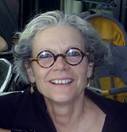>>To read the full article (PDF)
http://www.childresearch.net/papers/pdf/digital_2013_01_ACKERMANN.pdf
Papers & Essays
Oh the places we'll go! [Part 1] Rethinking education in the digital age
Summary:
Research on “digital natives” has shown that today‘s youngsters interact with one another, and the world, in ways that are different from the ways we did growing up. At the same time, the “millennials” are not unique, or alone, in their attempts to comply with so-called 21st-century-skill requirements. Their parents and teachers too are on a treadmill, and they too qualify as life-long-learners. In this paper, I suggest that the 21st-century ideals of new media literacy, life long learning, and online education (distant learning, MOOCs) can become a nuisance if pushed at the expense of people and place. Of particular significance in this regard are the ways today’s learners—and those in charge of their upbringing—navigate, position and pace themselves, and interact with each other in the settings they inhabit, however shortly or permanently. Learning everywhere and all the time is not a new idea, especially among progressive educators. Yet its unexamined uses by overly hurried or worried specialists call for a moment of pause. To be viable, our schools will need to be “edgeless” but they cannot be place-less! Students will have to be inter-connected yet without loosing their grounds. Lastly, educational institutions will have to rethink their “raison d’ètre” (place and identity) within a broader range of initiatives, platforms, and programs, all brought to the attention of growing numbers of [lifelong] learners in search of [short-term] options in an ever-changing flux of shifting opportunities.Keywords: Millennials, Life-long-learners, 21st century skills, Educational settings, Places, Paths, Pace,
Edith K. Ackermann

Edith K. Ackermann is a Visiting Scientist at the MIT School of Architecture and Senior research Associate at the Harvard Graduate School of Design, Cambridge, MA. Previously, Associate Professor of Media Arts and Sciences at the MIT Media laboratory, she also worked as a Scientific Collaborator at the Centre International d'Epistémologie Génétique, under the direction of Jean Piaget. She earned a Doctor of Developmental Psychology [Com Laude] and two Master's degrees in Developmental Psychology and Clinical Psychology, all from the University of Geneva, Switzerland.
In her work, Ackermann partners with researchers and practitioners from diverse backgrounds to help shape the future of learning. Two lessons she learned: When it comes to learning and creative uses of technologies, children have more to teach adults than adults to children! When it comes to designing for others, don’t guess what they want or do what they say: co-create what they—and you—will love once it is there!
Website: http://www.media.mit.edu/~edith
- Programming For The Natives: What is it? What's In It For The Kids?
- Creating a media environment that nurtures communication between parent and child - Introducing "PeKay's Adventures" and "Oyako de Monogatari"
- Social Networking and Child Development - 2. Benefits and Limitations of Social Networking
- Enriching Quality Physical Education through Application of Technology
- Use of ICT in Elementary School to Improve Children's Ability to Express Themselves
- Lower and Upper Secondary School Students' Behaviors and Perceptions Concerning TV and Related Factors - From "Study on Youths' Media Usage" (BPO Youth Committee)














